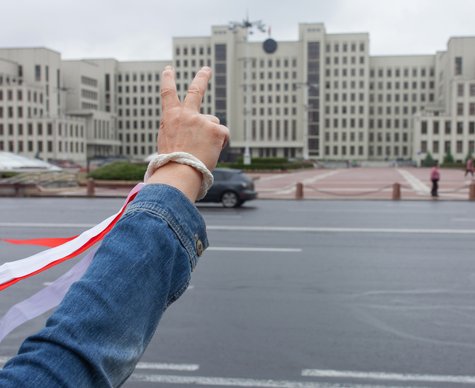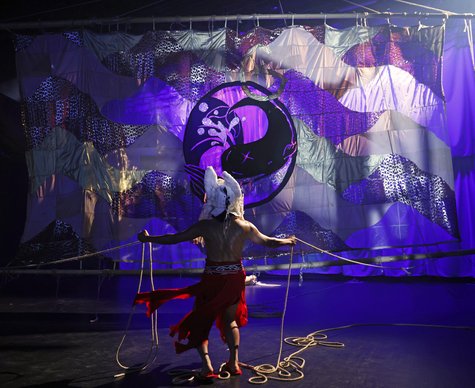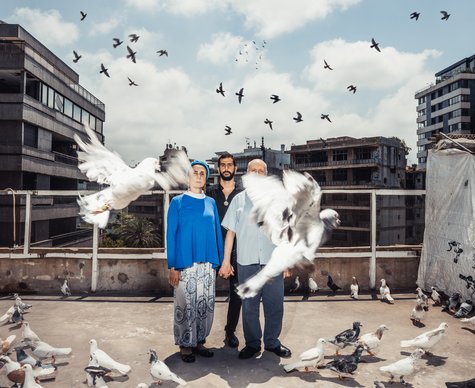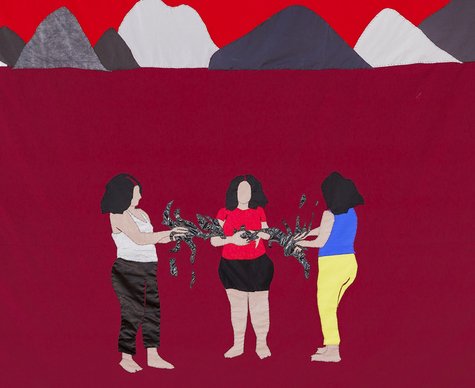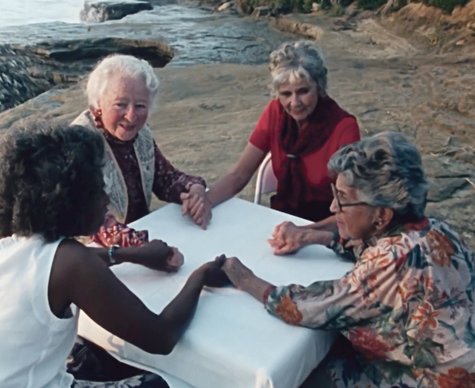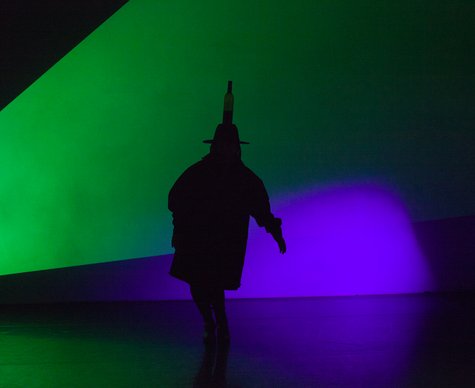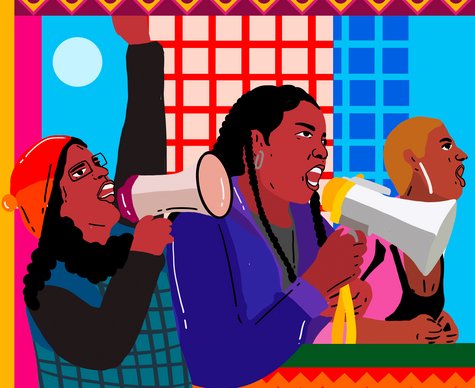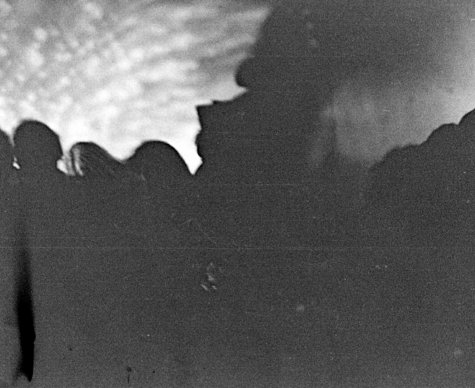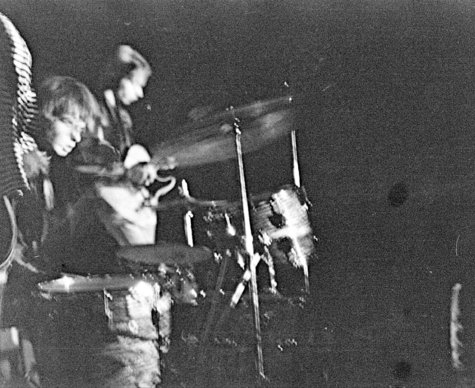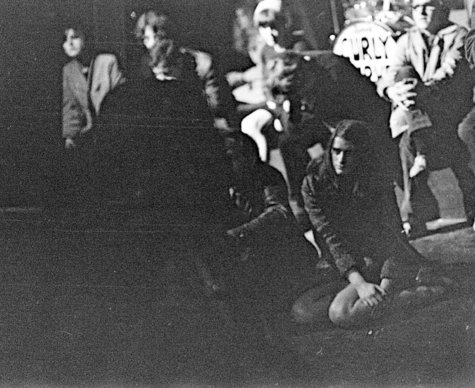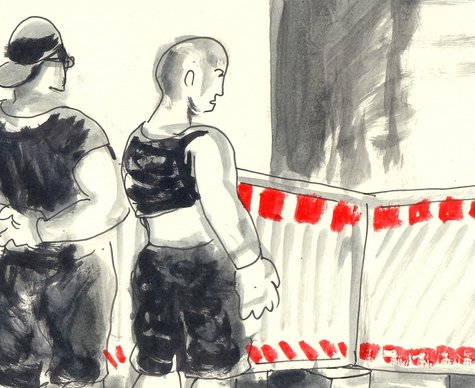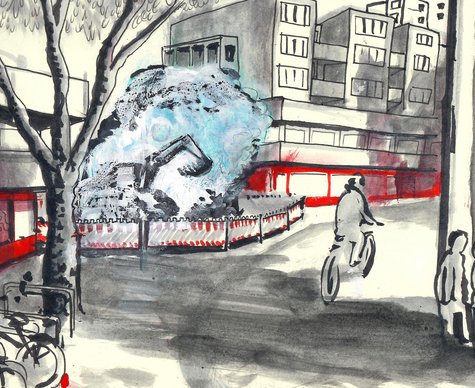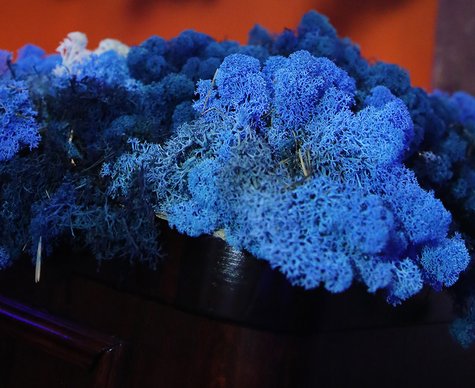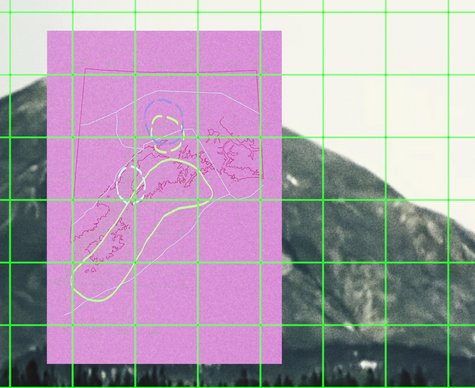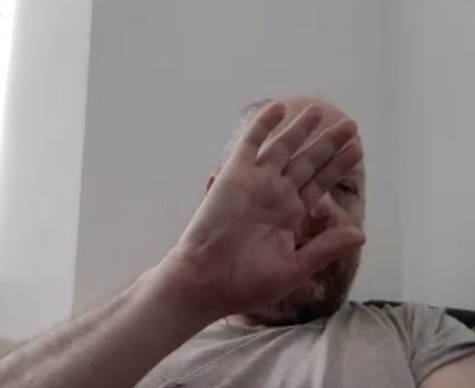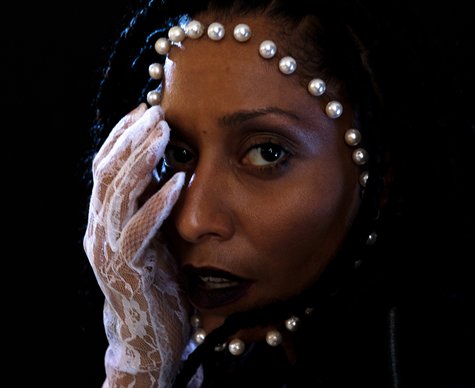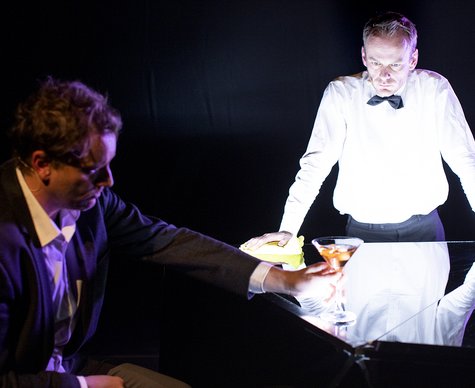With: Ultraviolett
A Tribute to Mata Hari: The Feminist The World Wasn't Ready For
Part of the Festival “Utopian Realities – 100 Years of Now with Alexandra Kollontai”
- Music

France, Vincennes. Outside in a field in front of a hill. On a gloomy and bitter cold morning in 1917. Unbound and without a blindfold a woman stands in front of this hill in an elegant black dress. The woman is calm and serene. A few seconds later she is executed by just one strike – twelve shots were aimed at her. Silently and slowly she sinks to her knees and falls down forward. The suspected double agent with the alias H21 is the middle-class Dutch mother of two children, Margaretha Geertruida Zelle. Margareta Geertruida Zelle, Marguerite Campbell, Lady Gretha MacLeod and finally Mata Hari. Who lived out Alexandra Kollontai’s glass of water theory to the fullest if not she? According to this theory, sex should be as natural as drinking a glass of water. Pleasure Politics. As a courtesan and professional exotic dancer Zelle’s chosen strategy of representation was seduction and playing with her audience’s colonial fantasies. Her stay in Java provided her with the material for this. Less sober and somewhat more ominous than her literary contemporary Kollontai, Zelle, performing as “Mata Hari”, or the “Eye of the Day” (or the sun), skilfully played with the power of the gaze and of projection to fulfil the longing for independence burning deep inside her.
A hundred years ago, revising your own biography or reinventing yourself over and over again was not quite as simple as drinking a glass of water. Nonetheless, despite having no training as a dancer, Mata Hari managed to become a star on Europe’s most glamourous stages. She celebrated Salomé as her ancestor, inspired the academic expressionist dancer Mary Wigman and at the age of 36 got an audition at Sergei Diaghilev’s elite troupe, the legendary “Ballets Russes.” The Mata Hari phenomena has retained its mythological power generations after her death. Today there are dozens of photos in the internet, plus innumerable variations on M.G. Zelle’s self-invented biography.
The soundtrack to the film “How Mata Hari Lost Her Head and Found Her Body” serves as the aesthetics starting point for record collector, text worker, and DJ Ultraviolett. For her homage to Mata Hari Ultraviolett uses Karen Barad’s philosophical methodological framework of “agential realism” to enter a world in which time, matter, origin and effect intertwine and overlap. Projection, reflection, diffraction: “M.G. Zelle’s translocal entanglements diffracted through blacklight”. Musical pieces from all time periods collide with traces of sound, interact and combine without ever becoming singular. Not one but many. Ancestors, contemporaries, heirs and new role models all become voices in a new way to read Mata Hari’s spectacular complexities.
(Text: Christin Bolte)
Ultraviolett DJ "Diggin the Sea, Merissa, Justin, Matthew, Christian and Ian"
Cast
Dates
Location
WAU
Hallesches Ufer 34, 10963 BerlinIn order to resume restaurant service at WAU in the future, renovation work will take place on the first floor of HAU2 from January until the end of the 2024/25 season. Instead, the bars in HAU1, HAU2 and HAU3 will be open one hour before and after the performances.
HAU2
Hallesches Ufer 34, 10963 BerlinThere are two marked parking spots in front of the building. Barrier-free restroom facilities are available. Four relaxed seats are available in the first row of HAU2. Tickets for wheelchair users and accompanying persons can also be booked via the ticketing system. If you need help, please contact our Ticketing & Service team at +49 (0)30 259004-27 or send us an email to
tickets@hebbel-am-ufer.de.Latest information for arrival:
There is currently a construction site on Hallesches Ufer between Wilhelmstraße and Möckernbrücke underground station. There is a divided replacement route for pedestrians (right) and cyclists (left), which are separated by a yellow ground line. The carriageway is narrowed to one lane.
Travelling to HAU2 via U Hallesches Tor:
If you are coming from Hallesches Tor underground station, you will have to use an alternative footpath from Wilhelmstraße / Hallesches Ufer junction, which is separated from the carriageway by a construction fence – the actual footpath is currently closed. Please note: the alternative route is also used by cyclists. Pedestrians should keep to the right. We therefore currently recommend that visually impaired or blind visitors come to the HAU with an accompanying person.
Arrival HAU2 via U Möckernbrücke:
When you leave Möckernbrücke underground station, please stay on the footpath on the canal side until you reach Hallesches Ufer / Großbeerenstraße junction – the opposite side is currently closed due to construction work.





















